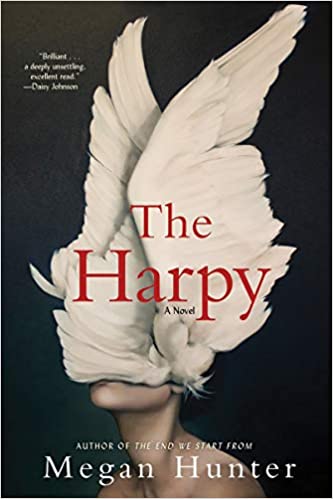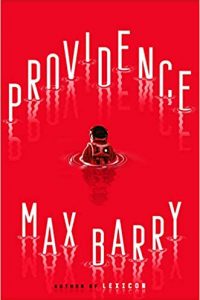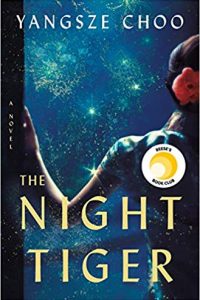Ian Mond Reviews The Harpy by Megan Hunter
 The Harpy, Megan Hunter (Picador 978-1- 52901-021-3, £14.99, 256pp, hc) September 2020. (Grove 978-0-80214-816-2, $26.00, 256pp, hc) November 2020.
The Harpy, Megan Hunter (Picador 978-1- 52901-021-3, £14.99, 256pp, hc) September 2020. (Grove 978-0-80214-816-2, $26.00, 256pp, hc) November 2020.
If you’re not familiar with Megan Hunter, you should be. Her 2017 debut, The End We Start From, is a fragmented story about a mother and her newborn child struggling to survive during a climate apocalypse. With prose that’s sparse but beautiful, and drawing on fables and myths, Hunter eschews the traditional disaster movie, end-of-the-world aesthetic for something more intimate and even hopeful. Hunter’s sophomore effort, The Harpy, is, to some degree, a more conventional novel than The End We Start from. It has a contemporary, familiar setting – a town somewhere in England – with a plot – a wife discovers her husband is having an affair that could have been lifted from any number of potboilers. But from the outset, it’s clear that the qualities that made The End We Start from such an extraordinary debut – the magnificent prose, the mythological underpinnings, the challenges of being a mother – are also evident in The Harpy.
The novel opens with Lucy Stevenson bending down next to her husband, Jake, with a razor in her hand. We soon learn two important facts: that Jake cheated on Lucy with a woman from work, and that he’s aware his wife is preparing to cut him. As Lucy informs us, ”we have agreed on a small nick, his upper thigh, a place that will be behind jeans, under shirts. A place of thick flesh, solid bone, almost no hair. A smooth place, waiting.” Just as the blade touches skin – ”a fairy-tale drop of blood escapes from under the silver” – the scene ends. Lucy then takes us back to the day she is made aware of Jake’s extra-curricular activities, via a message left by the husband of the woman Jake is sleeping with. When she confronts Jake, he ‘fesses up to the relationship, promising to end it immediately. As he fumbles for an explanation, Lucy recognises that ”he was trying not to speak in clichés… trying not to say all the things we’d both seen, a thousand times. All of those stupid, broken, fictional couples on television, not even able to find their own original language.” In a bid to repair the damage he’s caused, Jake gives Lucy the permission to hurt him back three times because ”then we’ll be even.” What Lucy does next will not only affect her marriage but profoundly change her perspective on the world – as a woman, as a wife, as a mother.
Thematically The Harpy is a mirror image of Hunter’s debut novel. Where the tumultuous and apocalyptic backdrop of The end We Start from emphasises the positive, intense bond between a child and mother, The Harpy‘s anodyne setting – a peaceful English town – brings into stark relief the way women are alienated and dehumanised by society (or, to put it more bluntly: by men) when they take on the mantle of ”mother.” In a similar vein, Hunter’s interest in our shared fables and legends, with creation myths layered throughout The end We Start from, take on a more visceral and ambiguous quality in The Harpy. The titular character – a creature Lucy has been obsessed with since she was young – functions as both an expression of Lucy’s fury and her violent urges toward her husband, but also allows Hunter to play in a liminal space where Lucy transforms both figuratively and literally into a Harpy: ”These hands: they always looked gentle to me… but now they looked different, larger somehow, the nails too long and curving. Not a writer’s hands or an academic’s hands… something else.” It culminates in a startling, effective, and eerie climax where mimesis meets mythology.
The Harpy is also wickedly funny. For example, when asked whether her children know about the affair, Lucy imagines saying: ”We told little Paddy and Ted about the way my husband started fucking his coworker in hotels after work. Once, we said to them, Daddy had sex in a train toilet! Isn’t that brilliant?” And then there’s the party from hell, held after the whole town knows about Jake’s indiscretion, which devolves into farce as Lucy stumbles in on her neighbour, Mary, shagging her husband in the bushes. My favourite line from The Harpy, so wise and true it almost upstages the rest of the novel, is this observation – ”a children’s party, like a death, is never real until it is happening.”
Sliding between different modes and genres – twisted fairy tale, kitchen-sink drama, social commentary, and psychological thriller – The Harpy is near impossible to classify. Of course, that’s precisely why I love the novel and why I hope to be reading Megan Hunter’s fiction for years to come.
This review and more like it in the June 2020 issue of Locus.
 While you are here, please take a moment to support Locus with a one-time or recurring donation. We rely on reader donations to keep the magazine and site going, and would like to keep the site paywall free, but WE NEED YOUR FINANCIAL SUPPORT to continue quality coverage of the science fiction and fantasy field.
While you are here, please take a moment to support Locus with a one-time or recurring donation. We rely on reader donations to keep the magazine and site going, and would like to keep the site paywall free, but WE NEED YOUR FINANCIAL SUPPORT to continue quality coverage of the science fiction and fantasy field.







